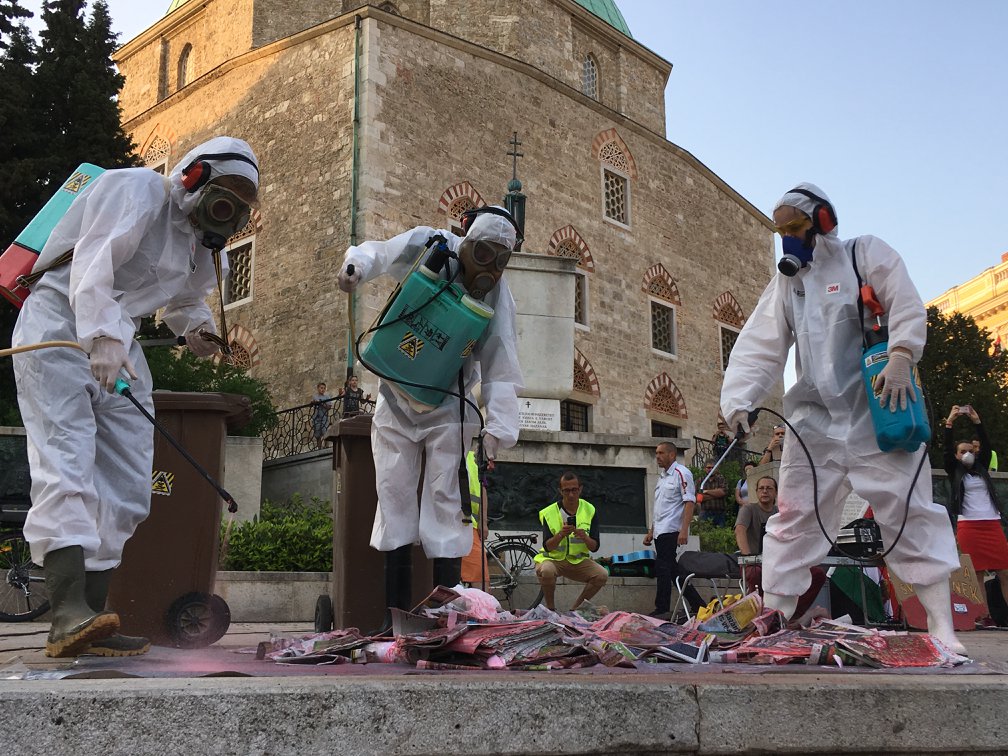The https://english.atlatszo.hu use cookies to track and profile customers such as action tags and pixel tracking on our website to assist our marketing. On our website we use technical, analytical, marketing and preference cookies. These are necessary for our site to work properly and to give us inforamation about how our site is used. See Cookies Policy
Renationalisation attempts and corruption backfired for the governing party in Pécs
Pécs is one of the biggest Hungarian cities outside the capital, in which Fidesz, the governing party of Hungary lost the local elections on Sunday. Voters elected the opposition candidate for mayor, and the unified opposition won an overwhelming majority in the city council as well. A number of local controversions contributed to the landslide political change.

The first controversial issue of the past ten years in Pécs was the “renationalisation” of the water utility company, which caused a diplomatic storm. The city water utility, Pécsi Vízmű Zrt. was partially privatized in 1995 by a foreign company, Suez Environnement. When Zsolt Páva of Fidesz became the mayor of the town at the mid-term elections in 2009, the service contract of Pécs Vízmű Zrt. was terminated. The office of the waterworks was literally occupied by force, and employees of the French company were no longer allowed to enter. Suez Environement then sued the municipality of Pécs, which had to pay HUF 3 billion in compensation. The sum was reimbursed to the city by the Hungarian government.
The next unsuccessful renationalisation attempt happened to the world-famous Zsolnay porcelain maker factory, which was sold to Syrian-Swiss businessman Bachar Najari in 2013. In 2016, an interest group well connected to the Hungarian government wanted to acquire the factory. They triggered a multi-frontal attack on Najari, one element of which was the transfer the factory’s 118 employees to Ledina Kft., a newly registered, Pécs municipality owned company. The aim was to liquidate the privatized Zsolnay and take over the factory by the publicly owned Ledina. But they did not succeed, Zsolnay recovered and Ledina went bankrupt.
Ownership struggle rages at prestigious porcelain maker
In somewhat familiar fashion, the private owner of Zsolnay, a prestigious Hungarian porcelain maker was targeted by the local government, as well as its associated interests with the backing of the government with the aim of taking control through legal channels. The plan backfired, leaving many issues open.
Similarly, the so-called „Volvo-gate” did not turn out well for the Fidesz party in Pécs either. In 2015, the city council decided to buy a used bus fleet for HUF 3,5 billion. A private company registered in the Netherlands which offered 115 used Volvo buses, won the public tender. Later, however, it was revealed that Volvo’s Hungarian subsidiary had already offered the same fleet three months before the purchase, which then cost HUF 2.8 billion and consisted of 123 buses. This means that with the introduction of a middleman the city paid almost HUF 1 billion more for the same buses than it could have. The Hungarian authorities did not, but the Dutch started investigating the case, so eventually the case was opened in Hungary as well. The police has initiated proceedings against three people on suspicion of misconduct.
In the recent years one of the most famous cases of high-level corruption in the country was the Elios case, where the company of István Tiborcz, son-in-law of prime minister Viktor Orbán won dozens of public tenders of public lighting modernization financed by the European Union in Fidesz-led municipalities of Hungary. Pécs was one of them. Although Pécs did not use EU money to pay the investment, the fraudulent practices documented elsewhere were also applied here.
LED lamps by Orban’s son-in-law: This is how EU funds were stolen in the town of Vác
News broke in January that the European Anti-Fraud Office (OLAF) had finished a two-year investigation into EU-funded street light modernization programs in Hungary. OLAF found that there were serious irregularities and possible conflicts of interest concerning 35 such contracts.
The municipality of Pécs used a bank loan to finance the HUF 900 million investment, which contributed significantly to the indebtedness of the city. By 2017 the deficit of the city exceeded HUF 9 billion and the former Fidesz mayor was “placed under guardianship” by the Hungarian government. Incompetent municipal management cost HUF 9.5 billion for the Hungarian taxpayers when the government consolidated the debts amassed by the city of Pécs.
Written by Eszter Katus. You can read the original, Hungarian language story here. Photo: Demonstrators ‘detoxify’ local propaganda newspapers at an anti-government demonstration in Pécs in May 2018 on the city’s main square. Photo by Eszter Katus.

Share:
Your support matters. Your donation helps us to uncover the truth.
- PayPal
- Bank transfer
- Patreon
- Benevity
Support our work with a PayPal donation to the Átlátszónet Foundation! Thank you.
Support our work by bank transfer to the account of the Átlátszónet Foundation. Please add in the comments: “Donation”
Beneficiary: Átlátszónet Alapítvány, bank name and address: Raiffeisen Bank, H-1054 Budapest, Akadémia utca 6.
EUR: IBAN HU36 1201 1265 0142 5189 0040 0002
USD: IBAN HU36 1201 1265 0142 5189 0050 0009
HUF: IBAN HU78 1201 1265 0142 5189 0030 0005
SWIFT: UBRTHUHB
Be a follower on Patreon
Support us on Benevity!

